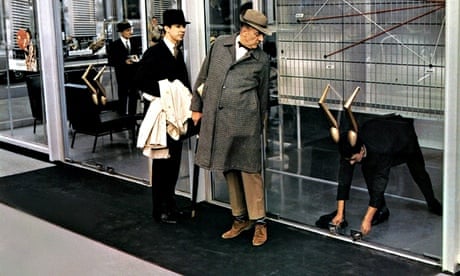Jacques Tati’s fascinating, flawed late film Playtime, from 1967, has been re-released: Monsieur Hulot is back, bumbling and adrift in a Paris that, on the surface, is gleamingly antiseptic in its modernity. But underneath all is chaos, and its potential for calamity stirs to life at Hulot’s touch. This city is every bit as strange as Godard’s Alphaville. Playtime is wonderfully controlled and contrived, with deep-focus scenes of surreality that must surely have inspired Roy Andersson. Having arrived at the glitzy building where he has an appointment, Hulot sees the reflection of the executive he needs in a neighbouring office’s plate glass – an illusion that begins his anarchic travels. I confess to finding some of its satire a bit genteel, and the tableaux indulged and over-extended with some quaint rhubarb-rhubarb acting from the crowd-scene extras. But its recurrent brilliance can’t be doubted: Playtime offers us an even clearer view of the contrast between Tati’s broad physical comedy as an actor and his superbly cerebral detachment as a director.

The satire might be a bit genteel at times, but its recurrent brilliance can’t be doubted
Explore more on these topics
Comments (…)
Sign in or create your Guardian account to join the discussion